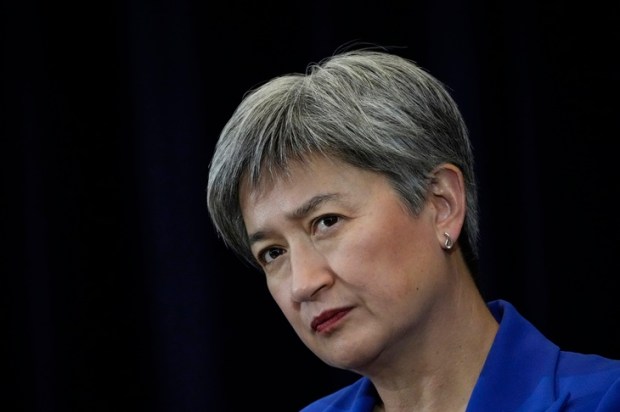It might be time to say something in defence of offence.
In recent weeks the views of Craig Kelly, Israel Folau and Margaret Court have all been the subject of public discussion and there have been many suggestions that some kind of action should be taken against them on the basis that their views are offensive to many members of the community. It can no doubt be assumed that their views are not widely held in the community but that is not a reason why they should be stifled. There will often be aspects of public debates that are offensive to some sections of society but there is real danger in attempts to close down that public debate.
It is hardly surprising that many people have little tolerance for opinions that contradict their own. When I was practising in the area of defamation law, I was often confronted by angry clients who wanted to sue over material published about them in the media. Their anger was quite understandable but in some cases, it was necessary to explain that the law of defamation provides a defence for an expression of opinion that is based on facts set out in the publication or would be widely known to readers or viewers. An example would be a factual statement that the minister for planning had approved the demolition of a heritage building followed by the comment that this was a disgraceful abuse of power. This explanation was often greeted with incredulity by prospective plaintiffs who found it hard to imagine that hostile and critical comments about them could be legally permissible.
The dangers of trying to limit public discussion on political, social and economic is, of course, at the heart of the long-running debate over s 18C of the federal Racial Discrimination Act and its State and Territorial counterpart. All of these legislative provisions make it unlawful to publish material that is offensive to some members of the community. It needs to be emphasised that none of these provisions are necessary to deal with incitements to violence against any particular groups in society because this has always been – and still is – a criminal offence under the common law and is now also an offence under some statutory provisions in the various jurisdictions. There are many references today to “hate speech” but genuine hate speech is already the subject of criminal law. For many practitioners of political correctness, however, hate speech is simply the expression of an opinion with which they disagree.
This is not to say, of course, that those who express dissenting opinions may not suffer penalties other than legal ones. Israel Folau, for example, has paid a high price for his publicising of some of his religious views but, at a time when sporting bodies and sporting sponsors are extremely cautious about any controversial opinions, it was almost inevitable that his career would be severely disrupted. It seems that Folau’s attempt to join NRL club St George for the coming season was brought to a halt by the threat of a major sponsor that it would withdraw its financial support from the club. It is likely, however, even if St George had been willing to proceed, any agreement between Folau and the club would have been vetoed by the NRL which has the final say and, like its AFL counterpart lives in constant fear of damage to its public image.
There is something of an irony in the furore over Margaret Court’s honours award, given that almost all the recipients of these awards are persons of impeccable political correctness. It is almost unheard of for an award to be given to someone with opinions that are not in every respect politically correct, and, when this occurred last year in the case of Bettina Arndt, there was a storm of protest and demands that the award be taken away. The same has occurred in the case of Margaret Court and it is true that Arndt’s award was not withdrawn and that Court’s award seems likely to remain. Nevertheless, it can be assumed that those who make these recommendations will try to avoid in the future proposing an award to anyone who has expressed controversial opinions on any subject.
In the case of Craig Kelly, it might be thought that a member of parliament was impervious to restrictions on his or her ability to express opinions, however unpopular they might be. But a member of one of the major parties is always susceptible to pressure from his or her parliamentary colleagues and, if a member of the government party, from ministers and the prime minister, as seems to have occurred in Kelly’s confrontation with his colleagues. Only a few decades ago backbenchers had considerable independence and no one considered it extraordinary if they put forward views that did not accord with their party’s general policies. But now the slightest deviation from the party line is seized on by the media to promote a narrative of division and to force the party leaders to step in and have any dissenting opinions quashed.
There are very few people in our society who can say what they think with impunity if what they think might offend some sections of the community. Apart from social ostracism, they may face severe financial penalties if they work in the public or private sector and their employer is concerned about the organisation’s public image. Or if they are in business and some of their customers decide to boycott their products. And even in universities, once places where the challenging of conventional views was considered a traditional role for academics, there is little tolerance for such an exercise on the part of either staff or students. We should get rid of laws that make expressions of opinion unlawful but, even if that were to be done, we still need a much greater tolerance than we have now for opinions that are outside the mainstream.
Got something to add? Join the discussion and comment below.
Get 10 issues for just $10
Subscribe to The Spectator Australia today for the next 10 magazine issues, plus full online access, for just $10.


























Comments
Don't miss out
Join the conversation with other Spectator Australia readers. Subscribe to leave a comment.
SUBSCRIBEAlready a subscriber? Log in